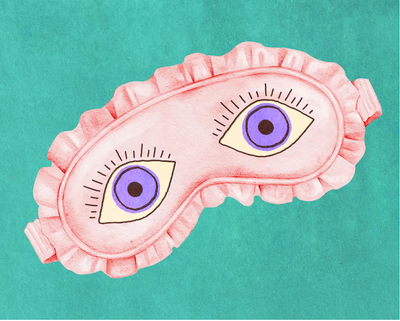What is Paradoxical Insomnia?
Mask Craft on 28th Oct 2025
What is paradoxical insomnia?
In 2018, Hannah Scott, a sleep researcher at Flinders University, waited for a woman to fall asleep.
This can take time when the subject is connected to equipment measuring brain activity, eye movement, heart rate and muscle activation. But about 30 minutes after the woman closed her eyes, Scott saw the telltale signs of sleep from the electroencephalogram, or EEG: a shift to lower-frequency brainwaves.
The woman progressed into deep sleep, and “was there for quite a while”, Scott said. Then, the woman suddenly woke up, saying she had to go to the bathroom. As Scott detached her from the machines, the participant apologized, saying she felt terrible she hadn’t been able to fall asleep yet.
“She was absolutely adamant that she hadn’t slept,” Scott said, who had just watched her sleeping.
When a person is sleeping, but doesn’t know they are, this is called sleep state misperception. If woken up, a person will say they were awake the whole time.
It’s a frequent issue in insomnia, said Matthew Reid, a neuroscientist and sleep researcher at Johns Hopkins School of Medicine. An insomniac may say they have barely slept, but when tested in a sleep lab, they might actually be sleeping a normal number of hours per night. This leads to a conundrum: how does someone feel rested when they are sleeping enough – but just not realizing it?
This experience, which afflicts a significant number of insomniacs, has had various names: paradoxical insomnia, subjective insomnia, sleep state misperception and, most recently, subjective-objective sleep discrepancy.
By any name, the phenomenon reveals that we don’t always know when we’re asleep or awake, and that our beliefs about sleep influence how rested we feel. At the same time, researchers are finding that people with paradoxical insomnia may not be entirely wrong; there may be something real that lies between sleeping and wakefulness.
What is paradoxical insomnia?
Paradoxical insomnia is a subcategory of insomnia. People with it report that they only sleep a few hours a night and don’t feel rested. But sleep studies show they are getting more sleep than that – sometimes even a typical amount.
People with insomnia seem to suffer from straightforward problems: trouble falling asleep, staying asleep and getting enough sleep to feel rested. Their sleep issues make them tired during the day; they have difficulty concentrating, and feel irritable and grumpy.
But total sleep time doesn’t always differ by much between healthy sleepers and people with insomnia. On average, according to one meta-analysis, insomniacs sleep just 23 minutes less per night than healthy sleepers. If time asleep isn’t the whole story, what is?
Of course, some people need more sleep than others. But it turns out some people don’t perceive their sleep accurately. They do not seem to remember that they did sleep. They may sleep a full night, but not feel rested. These studies revealed that insomnia can be a more complex experience than it appears.
Read More:https://www.theguardian.com/wellness/2025/oct/27/paradoxical-insomnia-sleep






